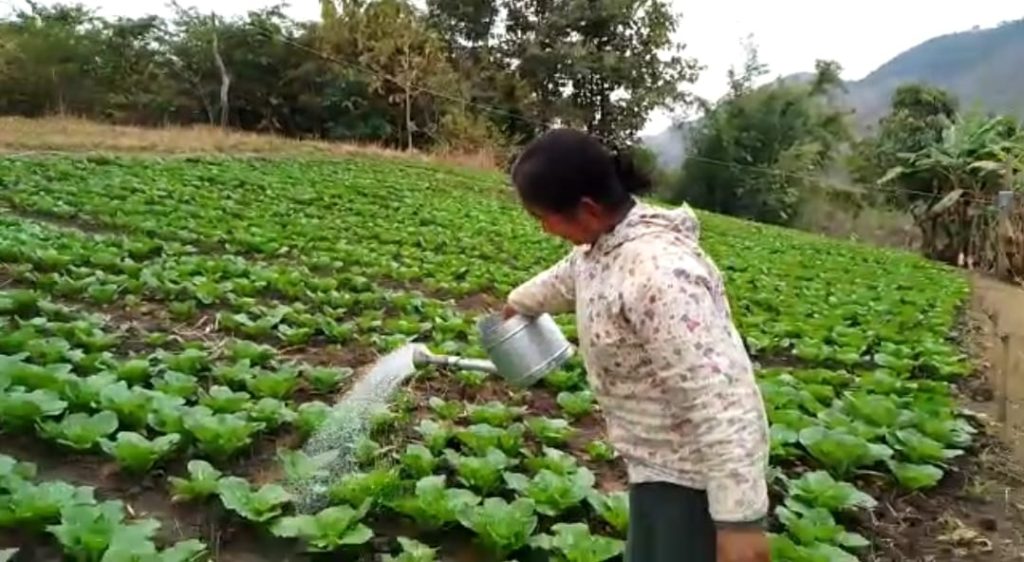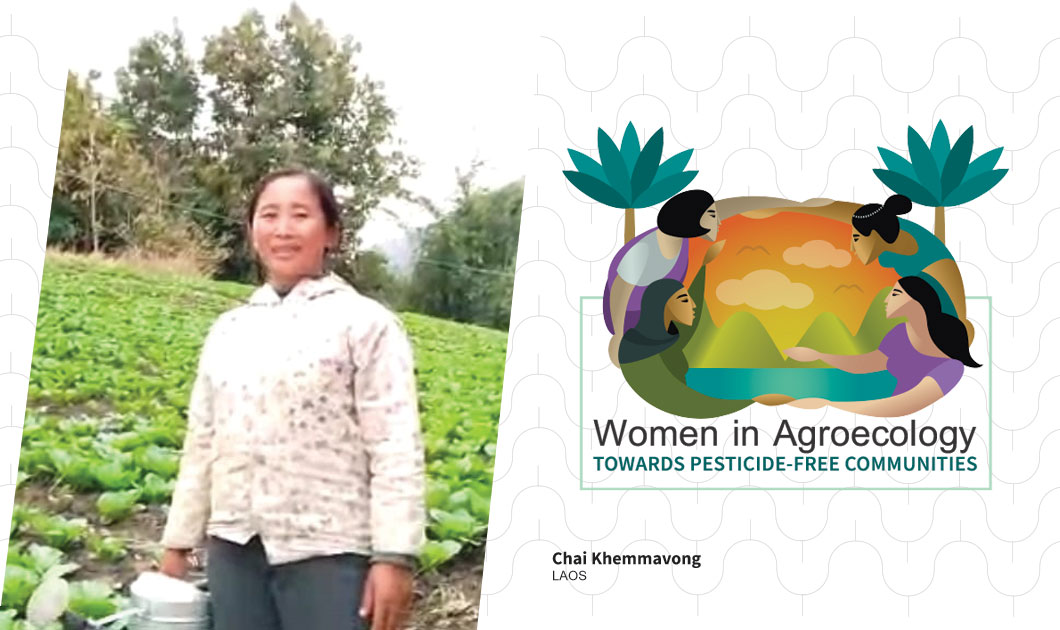Forty-eight-year-old Chai Khemmavong has been farming for 25 years in two hectares of customary land in Kuaymor Village, Kham District, Xiengkhuang Province in Laos. She plants traditional rice varieties and vegetable crops such as garlic, coriander, spinach, and long bean using agroecological practices.
Most of her early years was devoted to monocropping and chemical-intensive agriculture. She felt that her health suffered a lot back then. “When I used chemicals in my farm, my health was not good. I was constantly suffering from various illnesses. After I reduced the use of chemicals, my health has improved a lot,” she said.

Upon receiving information on the negative impacts of pesticides, as well as advice on how to transition away from their use, she was emboldened to try more sustainable practices within an integrated farming system. “District agriculture and forest technicians, as well as the local non-profit SAEDA advised me on new techniques. I learned biological plant protection techniques, such as how to use mold/fungus to control pests, integrated cropping, and mulching to slow down weed growth. These all reduced my need for pesticides.”
Local seed conservation is key to maintaining crop diversity. In many farming communities, women like Chai usually play the important role of seed saving. “I propagate my own seeds. Every two years, I collect and select seeds. I choose seeds that grow into strong plants, with no disease. The crop varieties that result are much more resilient to droughts and flood,” she said. With diverse cropping, she also observes that the soil is much more fertile.

Transitioning to agroecology has reduced farming costs by over three-fourths. Before, she used to apply chemical fertilizers four times a month. Now, she only applies chemical fertilizers once a month. For the rest of the time, she uses organic fertilizers made mostly from chicken dung. Chai earns around USD 1,500 per month. Although still not enough for all of her family’s needs, the reduced costs of chemical inputs have helped improve her income.
Biodiversity has improved around the farm, which now has a lot of earthworms and other beneficial insects.
Many households in her village have also started to reduce pesticides use, motivated by the need to protect their health and the environment. Chai is enthusiastic about this development. “I always give information about agroecology to the community for people who are interested and want to transition.” Together with other villagers, she wants to learn new techniques and develop markets for organic produce.
Sustainable farming has also helped empower her as a woman. “I now have the right to spend the money I have earned and can make more decisions in the house. I can also exchange my experiences on agroecology with other women in my community,” she said. ###
Women In Agroecology: Towards Pesticide-Free Communities is a continuing storytelling initiative of PAN Asia Pacific and its partners to document stories of rural women who are survivors of pesticide poisoning and/or making the transition to agroecology.
Our contributing partners: Shikkha Shastha Unnayan Karzakram (SHISUK), Bangladesh; Society for Rural Education, India; Gita Pertiwi, Indonesia; Thanal Trust, India; PAN India; and Sustainable Agriculture and Environment Development Association (SAEDA), Laos








Discussion about this post